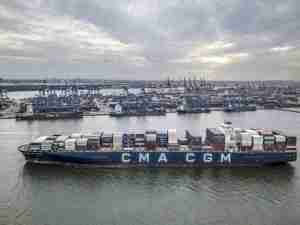More iron ore mines to shut in China as prices drop
By: Reuters | Jun 16 2014 at 09:11 AM | Maritime
This year’s sharp drop in iron ore prices could force China to close up to 80 million tonnes of domestic mine production, more than a fifth of its total annual output, consultancy Wood Mackenzie said on Monday.
The ability of mines in China to weather a sustained fall in prices for the steel-making ingredient has been debated since fixed annual pricing was scrapped five years ago for short-term indexing.
China’s domestic industry is highly fragmented, with producers in coastal areas believed to be facing some of the highest costs in the country—well above the price of imported ore.
Wood Mackenzie analyst Andrew Hodge said that further mine closures would likely benefit Rio Tinto , BHP Billiton and Fortescue Metals Group, which mine the Australian Pilbara iron ore belt on much higher profit margins.
Brazil’s Vale would also gain, he said.
The benchmark iron ore price <.IO62-CNI=SI> dropped to a 21-month low of $91.50 a tonne late last week, as a supply glut smothered a market faced with slower steel demand. The price has plunged a third so far this year.
Hodge estimated at least 40-50 million tonnes of higher cost Chinese mine production, mostly in coastal areas where iron ore is typically of lower quality, was already earmarked for closure.
He said that could rise to as much as 80 million tonnes given the price outlook for the rest of 2014.
“The bulk of private production in the coastal region will be in distress at current levels,” Hodge told a media briefing, putting China’s total domestic production at around 350 million tonnes a year.
When iron ore prices plummeted as low as $60 a tonne in 2009, China saw “huge closures” in the domestic sector as local miners were unable to operate at a profit, he said.
Hodge said there had already been some mine closures, but these were not yet widespread.
Rio Tinto breaks even at around $43 a tonne, while BHP needs a $45 iron ore price to stay in the black.
Vale’s is higher at $75 a tonne due to the greater distance from Brazil to China.
Fortescue, whose costs are steeper due to its lower grade ore, said on Monday it would spend $275 million building four iron ore vessels of its own to help reduce reliance on outside shippers.
Hodge expects iron ore exports by Australia to rise by more than 100 million tonnes this year.








